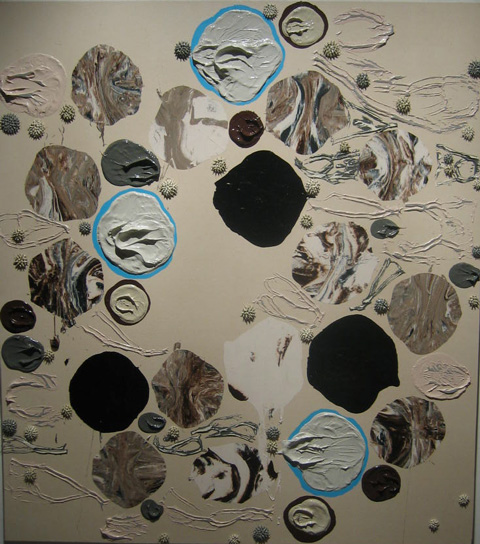Psychology Today has a good article on magical thinking. The article does make some fallacious generalizations, such as equating intuition with magical thinking -- intuition, or gut feelings, is proving to be more valid than rational responses in many instances -- which are very different systems. Overall, however, it's a good article.
Here is a bit of the article:
Magical thinking springs up everywhere. Some irrational beliefs (Santa Claus?) are passed on to us. But others we find on our own. Survival requires recognizing patterns—night follows day, berries that color will make you ill. And because missing the obvious often hurts more than seeing the imaginary, our skills at inferring connections are overtuned. No one told Wade Boggs that eating chicken before every single game would help his batting average; he decided that on his own, and no one can argue with his success. We look for patterns because we hate surprises and because we love being in control.
Emotional stress and events of personal significance push us strongly toward magical meaning-making. Lancaster University psychologist Eugene Subbotsky relates an exemplary tale. "I was in Moscow walking with my little son down a long empty block," he recalls. Suddenly a parked car started moving on its own, then swerved toward them, and finally struck an iron gate just centimeters away. "We escaped death very narrowly, and I keep thinking magically about this episode. Although I'm a rational man, I'm a scientist, I'm studying this phenomenon, there are some events in your life that you cannot explain rationally. Under certain circumstances I really feel like someone or something is guiding my life and helping me." (Personally I would have felt like something was trying to kill me and needed to work on its aim.)
"There are many layers of belief," psychologist Carol Nemeroff says. "And the answer for many people, especially with regard to magic, is, 'Most of me doesn't believe but some of me does.'" People will often acknowledge their gut reaction and say it makes no sense to act on it—but do it anyway. Other times, they'll incorporate superstition into their worldview alongside other explanations. "For example," says Susan Gelman, a psychologist at the University of Michigan, "God puts you in the path of an HIV-positive lover, but biology causes you to contract the virus from his semen."
Often we don't even register our wacky beliefs. Seeing causality in coincidence can happen even before we have a chance to think about it; the misfiring is sometimes perceptual rather than rational. "Consider what happens when you honk your horn, and just at that moment a streetlight goes out," observes Brian Scholl, director of Yale's Perception and Cognition Laboratory. "You may never for a moment believe that your honk caused the light to go out, but you will irresistibly perceive that causal relation. The fact remains that our visual systems refuse to believe in coincidences." Our overeager eyes, in effect, lay the groundwork for more detailed superstitious ideation. And it turns out that no matter how rational people consider themselves, if they place a high value on hunches they are hard-pressed to hit a baby's photo on a dartboard. On some level they're equating image with reality. Even our aim falls prey to intuition.
Read the rest.

No comments:
Post a Comment